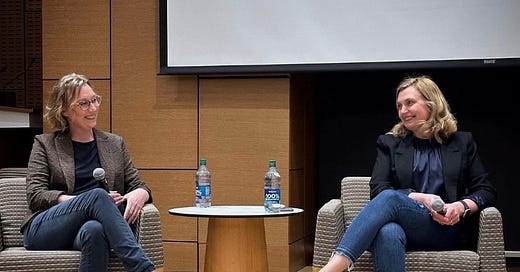Just this week, I was telling someone how I’d only recently stopped carrying a copy of Jesus and John Wayne with me whenever I traveled. There was a fairly long stretch when critical reviews were coming out almost daily that misrepresented my book in serious ways. I kept a copy on me at all times so I could grab a quick screenshot and tweet out the corr…
Keep reading with a 7-day free trial
Subscribe to Du Mez CONNECTIONS to keep reading this post and get 7 days of free access to the full post archives.



